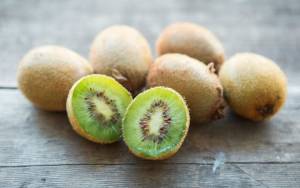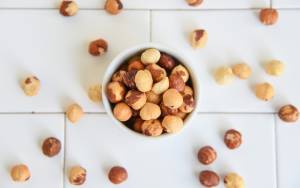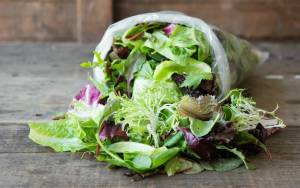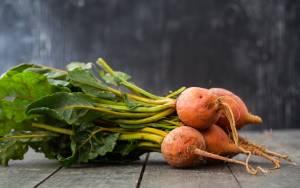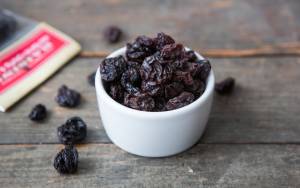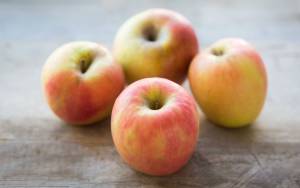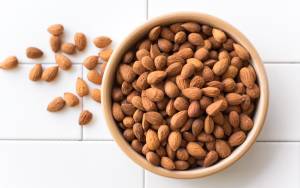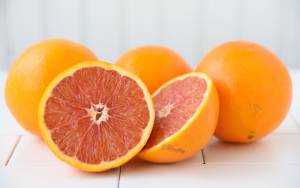
Missing Fresh Produce? Try One of These “Wintertime” CSAs
While most often associated with summertime splendor and community farmers markets, CSAs (which is shorthand for Community Support Agriculture) can vary widely in their arrangements with consumers, but basic idea is universal: a farmer typically offers to sell shares equal to in value of a box of vegetables or other farm products at the time of harvest. Consumers can then purchase shares and in return receive a seasonal produce box each week throughout the farming season.
In most CSAs, for example, consumers (also called “members” or “subscribers”) pay up front for the whole season, and if crops don’t actually materialize as planned– say, the weather wipes out the tomatoes– the consumers are not necessarily reimbursed. Farmers may do their best, substituting whatever they can harvest, yet buyers may feel they are getting stuck with several pounds of cabbage that they can’t eat, or items they don’t know how to cook. (Today, there are more than 4,000 CSA farms in the U.S., according to Local Harvest, a nonprofit group that maintains a searchable database on the subject.)
Five Farm-to-Fridge Alternatives
For those who find the risks of traditional CSAs a bit daunting and those who simply do not have access to a CSA– or a lack of time to spend at a crowded farmer’s market– there are many compelling alternative ways to buy locally-farmed, super fresh produce–much of it organic– as well as delicious packaged goods, which can both be delivered with convenience.
Farmigo
Brooklyn-based Farmigo has created an online farmer’s market that connects you directly to local producers who provide a wide range of fresh and packaged foods. Each week Farmigo connects patrons to more than 400 different a la carte items –everything from from organic arugula to kids’ picks like cheddar bites– or get a bundled box, including “Best Sellers,” or the “Organic Farmer’s Choice. Then you pickup from a designated nearby “local community,” such as a school or office, where you have joined. The service is offered in New York, New Jersey, Northern California, and most recently Tacoma-Seattle area.
CEO and founder Benzi Ronen says the company started out by building software for farmers so they could better manage their businesses, but saw an opportunity to shift its focus to consumers who can get much more choice and variety than you get with a CSA where you can end up with whatever the farmer has produced that week.
What makes Farmigo unique? Three reasons, says Ronen. “One is our relationship with farmers and foodmakers….we’re able to give our producers an average of 60 cents for every dollar spent, which is about 3 times the price they get with traditional grocery systems.”
Another reason, Ronen says, is their “just in time” sourcing model: only the amount that they need to fill each week’s orders is harvested or made, reducing the amount of food waste and spoilage that occurs with most grocery options.
And finally, there’s the unique delivery model. Ronen explains: “We foster relationships with community organizers who run and host our pickup sites out of their homes, businesses, or even at their children’s school, where 10% of the community’s order revenue goes back to support fundraising initiatives.”
Barn 2 Door
In March 2015, Janelle Maiocco launched a new online marketplace called Barn2Door along with staffers from her previous venture, Farmstr. The new site, based in Seattle, is a web- and mobile-technology platform that helps sustainable farmers and other food producers manage their own online storefronts and sales fulfillment.
Maiocco, a serial entrepreneur and urban farmer says, “Barn2Door is like an Etsy for farms– every clean, sustainable food producer can create a store, showcase their supply, and sell direct. They can share their store with existing customers and also benefit from being part of a discoverable marketplace where new customers can find them and source high quality farm food direct.”
A nice feature is that the ordering pages let you “meet your farmer” — see their certifications, growing practices, and also get some detailed descriptions of the products along with great articles and recipes. Reading the related content about the products is almost as much fun as buying the products; the site makes it easy to contact the farmer if you have questions or want to connect with them on social media.
Good Eggs
Good Eggs wants to change the way we eat, period. The services they provide as an organic food delivery start-up are similar to Farmigo’s, but Good Eggs delivers to the home or office directly and only if you are in the San Francisco Bay area. They are no longer in Brooklyn, Los Angeles, or New Orleans. Having expanded too rapidly, they have had to cut back and refocus their plans.
The Good Eggs slogan, “The best ingredients for cooking, all in one place,” reveals their strong emphasis on cooking as well as technology. Having recently introduced an IOS app for iPhone and iPad, they want phone shoppers to have access to the same local ingredients as they have on their website. And they now have next day delivery in the Bay area if you order by 10 PM (for a fee).
Grub Market
Of course the Bay Area is home to the original sustainable organic food movement so Good Eggs has a lot of competitors. One of them is Grub Market, which also focuses on Bay area shoppers. But as of October 2015, has begun to ship California-grown produce nationwide.
A key differentiating feature is that Grub Market advertises lower “wholesale” prices and free shipping for orders over $39. Their tagline is: “Wholesome Food at Wholesale Prices.” “The nationwide prices from GrubMarket,” says CEO and founder Mike Xu, “will always be 20% to 50% off what you’d typically find at Whole Foods and other grocers, as our promise to you is to always deliver unbelievable quality at unbeatable prices.”
OurHarvest
An online market focused just on New York City is OurHarvest, founded by childhood friends Scott Reich and Mike Wink. Starting in 2014 with just a few dozens products and pickup spots on Long Island, it now offers more than 200 products with both pickup spots and delivery service via Uber to most of New York City.
The mission at OurHarvest is very different from some competitors. Customers place orders on the website for fresh, “all-natural,” carefully sourced and traceable products, but what is special is that for every order above $25, OurHarvest donates a meal to a local food pantry to help combat hunger. The company reportedly has donated an estimated 8,000-10,000 meals this year.
Specialty CSA for Coffee
Started in 2011, farmers who own CoffeeCSA.org receive 100 percent of the profits. With conventionally-sold coffee, farmers usually sell green coffee beans to a broker, then the beans can be handled by several other middlemen before they reach consumers.
In contrast, farmers with Coffeecsa.org are member/owners of a cooperative called the Pachamama Coffee Cooperative that includes 13,000 small-scale family farms in Mexico, Peru, Ethiopia, Guatemala, and Nicaragua. Shoppers can subscribe monthly or annually to the CSA, which is based in Davis, California, with a roasting plant in San Francisco.
Organic coffee that is fair trade certified is just one of the stand-alone purchases that are listed on the website. A 10-oz package of USDA certified 2015 Organic Yirgacheffe costs $20. It’s guaranteed freshly-roasted and delivered free within 2-3 days, depending on your east coast, midwest, or west coast location. (The shipping fees seem to be built-in to the price.)
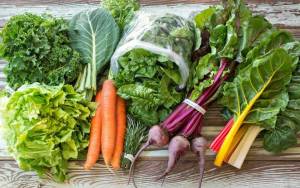
Rising Stone Farms and Field Apothecary
A small urban specialty CSA that provides both fresh vegetables, fruits, and medicinal herbs for the local southeast Portland/Willamette Valley community, Rising Stone Farm is a CSA that sells herbal products as shares in the CSA, including lotions, syrups, medicinal honeys, and vinegars.
Members who sign up for a full share get a selection of 13 herbal products and information sheets at $170/season, or a half share at $100, choosing from 6-11 items each season. Rising Stone’s farmers also offer workshops on growing foods and medicinal herbs. Potted herbal plants are sold at the local farmer’s market during the winter months— everything from ashwagandha and epazote to valerian and yarrow.
Another herb CSA, this one located on the east coast, is Field Apothecary (see our previous coverage). Farming on 3 acres in the Hudson River Valley of New York, all the herbs are ecologically grown, harvested, and processed by hand, according to the website.
The Winter Single Season subscription to their “Field Wellness Box” costs $180 and includes eleven wonderful-sounding “medicines”– for example, “chocolate mint tea” (kids wonder how the “chocolate” got in there), “flaming cider tonic” that makes a great vinaigrette, and “A to Z all purpose salve” to repair cuticles and winter skin.
Hatchery
Another specialty shopping site called Hatchery features handcrafted condiments and small batch ingredients from “makers” who are carefully selected across the country.
If you become a member at $20 per month, you’ll receive a monthly delivery of an elegant looking “Tasting Box” of pre-selected items along with recipes, and you can meet the makers of the products.The key idea behind the product selection seems to be that they are “made by real people not big companies,” plus the makers and their stories are featured in detail, so you can see how they developed their unique flavors.
A peak inside one sample delivery reveals an enticing variety of items like cashew cardamom almond spread, white truffle mayonnaise, pure lavender extract, shallot oil, honeys, cooking sauces, gourmet seasoning for the well-dressed egg, and even cocktail mixers. What a treat!


























